Interstellar (2014)
Directed by: Christopher Nolan
Written by: Christopher Nolan, Jonathan Nolan
Starring: Anne Hathaway, Bill Irwin, John Lithgow, Mackenzie Foy, Matthew McConaughey, Michael Caine, Timothee Chalamet, Wes Bentley
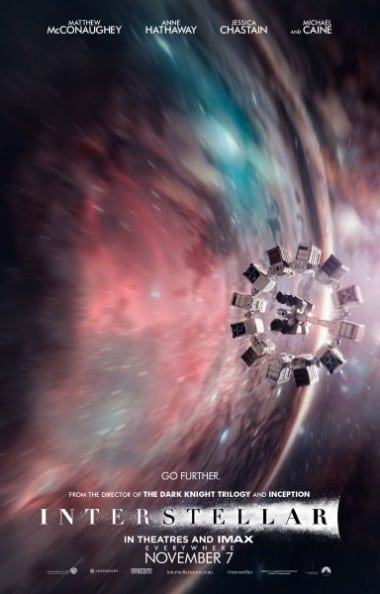
In a letter penned to 2001 Space Odyssey author Arthur C Clarke, Stanley Kubrick expressed his interest in taking a stab at creating the proverbial ‘really good’ science fiction movie. As with how great horrors balance fan service with subversion, this fabled standard of sci-fi would need to be one of that ticks the right boxes yet transcends them to combine the spectacle with a compelling drama that can appeal to non-fans and fanboys/girls alike. Whilst not being much of a genre geek, there are films I recognise as meeting these parameters, including Solaris, Blade Runner and The Matrix among others. Now in a seemingly perfect marriage of director and project, Christopher Nolan continues his line of credible blockbusters by branching further into the genre than he did on the impressive Inception (2010). The result is a deeply heartfelt and personal space opera that’s still utterly bombastic.
Around the halfway point of Interstellar I was convinced it’d be joining that list of science fiction classics. Without giving away the specific content, some turns in the narrative had led to a moment of real human vulnerability that, despite being utterly fantastical in its nature, truly caught me off guard. In this moment it all came together: the beauty, the scale and also the loneliness of the hero’s journey. This is the film at its best – a powerful piece of cinema about a regular family unit in irregular circumstances. The family in question is headed up by struggling all-American dad Cooper (another excellent turn by Matthew McConaughey); an old fashioned protagonist in a futuristic setting. With him are his daughter Murph (a very good performance by Mackenzie Foy) son Tom (the barely used Timothee Chalamet) and his own father Donald (the ever reliable John Lithgow). From the humble beginnings of American farmlands in a not so distant future, Interstellar sees their bond put to the test across space, time and everything in between. Now the nature of these struggles is not something I can really go into without potentially ruining most of the film for people. But at its most basic, a possibly supernatural (or possibly chance) encounter with the prominent researcher Dr Brand (Caine), Cooper comes back from retirement as an astronaut to front an expedition. The task is to find humanity a new world to replace a dying Earth, which has met its bleak end for some refreshingly indefinite reasons. Fortunately there are three potentially habitable rocks on the other side of a worm hole, placed by a mysterious force known as They. Forming a crew with Amelia (Hathaway) Doyle (Bentley) and robot Tars (Irwin), Cooper goes to retrieve samples from each and find a new planet to replace the blue one. Thus after a slow but involving opening he takes to the stars for some planet hopping, pop-physics and philosophical conversations about our place in the universe.
And what a well realised universe it is. The landscapes, spaceships and black-holes all look stunning and Nolan has a predictably wonderful eye for communicating the sheer wonder of outer space. And it’s not just space – there’s also some very impressive set pieces and action sequences that will rank among the most stunning of the year. In addition there’s some very confident handling of multiple story threads that, thanks to some interesting story telling, span vast temporal and spatial distances. And to top that off there’s an excellent soundtrack by Han Zimmer. Really it’s no wonder that, as stated above, around halfway through this film I was completely willing to label it a science fiction classic.
The problems start to incur during the third act when a new character (played by a famous actor I’m not going to list here) enters the film. From this point onwards the dialogue takes on a very preachy tone to spell out the purpose of the movie. It’s as if the Nolan brothers either lacked faith in themselves or the audience – regardless, the last hour takes on the kind of smug didacticism that we’d be more used to from first time student film makers as the characters mutter all too openly about the difficulty of choosing between one’s family and the rest of mankind. Yes the limits of mankind’s empathy maybe a topic fit for a good film. But this disregard for subtext or possible dichotomy of meaning is very jarring and condescending. After this a series of contrived events, and some all too literal deus ex machinas, see the science fiction angle dropped almost entirely for something all too spiritual and sentimental as the characters discover just how strong the energy of love can be. Along the way Nolan adopts some gimmicks that may succeed in getting him out of the corner his characters been written into, yet really cheapens his efforts ‘til then. Quite honestly I’ve rarely seen such a good film take such a nosedive as Interstellar does when it begins to tackle, head on, who They are and how the universe supposedly functions outside the limited parameters we can experience. It’s the kind of pseudophilosophical ravings the director has previously flirted with yet never committed to. Here their relationship blossoms.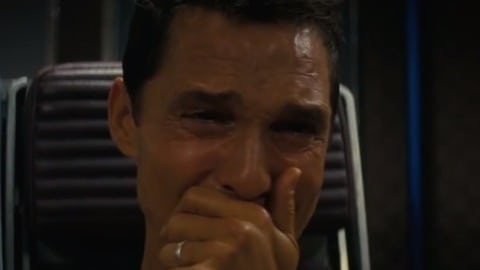
If this transition into a religious morality tale doesn’t immediately put you off then it may still make your list of genre classics, though for me it was both tedious and disappointing. Come the last 20 minutes the potential of the film’s premise works against these inclusions to try and deliver an emotional resolution. And while the one they go for is a reasonable idea, it isn’t one that feels satisfying because the means of getting there were so flimsy. Success is, after all, a journey and not a destination: a fault that is particularly unfortunate considering how epic this voyage to the stars had began.


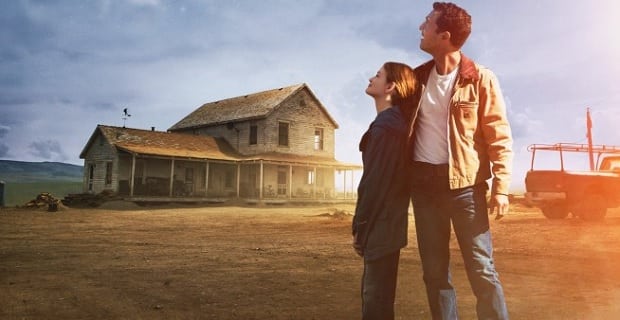
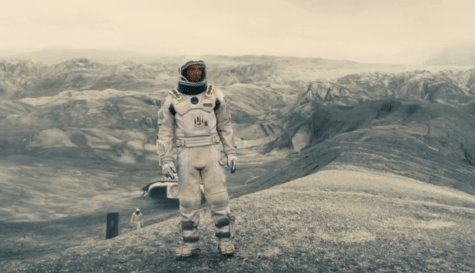



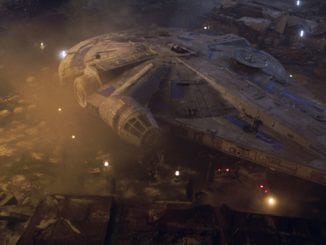
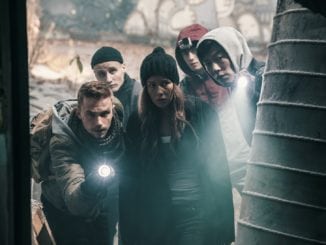

Be the first to comment